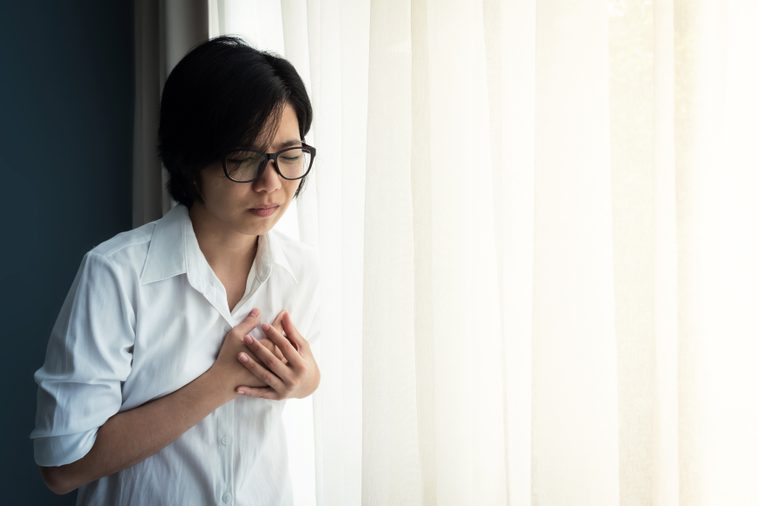
Breast pain
Pesky menopause changes and hormonal fluctuations can cause cyclical breast tenderness (ranging from bothersome to unbearable) even when Aunt Flo isn’t due for a visit. What’s more, since perimenopause causes irregular cycles, it’s nearly impossible to know when your breasts are going to begin throbbing, according to the National Cancer Institute. Your breasts may also feel “more lumpy” than they did before, notes Ellen Dolgen, Menopause Mondays blogger and author of the free eBook, The Girlfriend’s Guide to Surviving and Thriving During Perimenopause and Menopause.
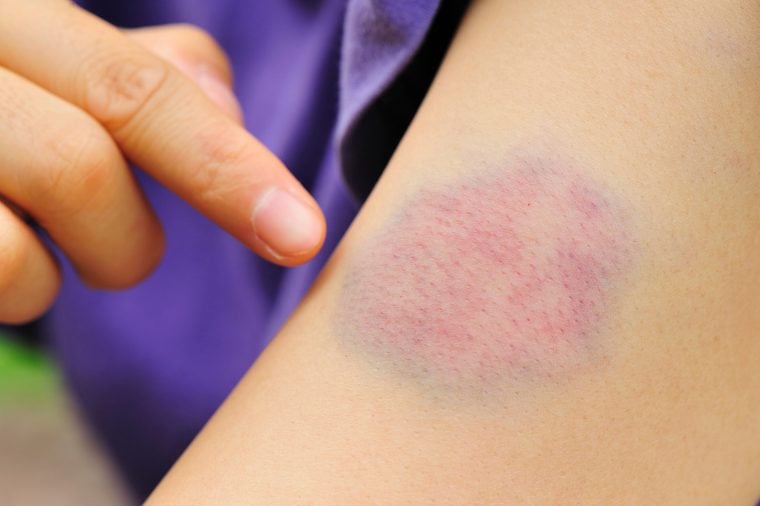
Unexpected bruises
Perimenopause causes some women to become a bit clumsy—and those minor bumps can quickly turn into big bruises. This is because fluctuating hormones can make skin thinner, making you bruise easier. These are the signs you could be headed for early menopause.
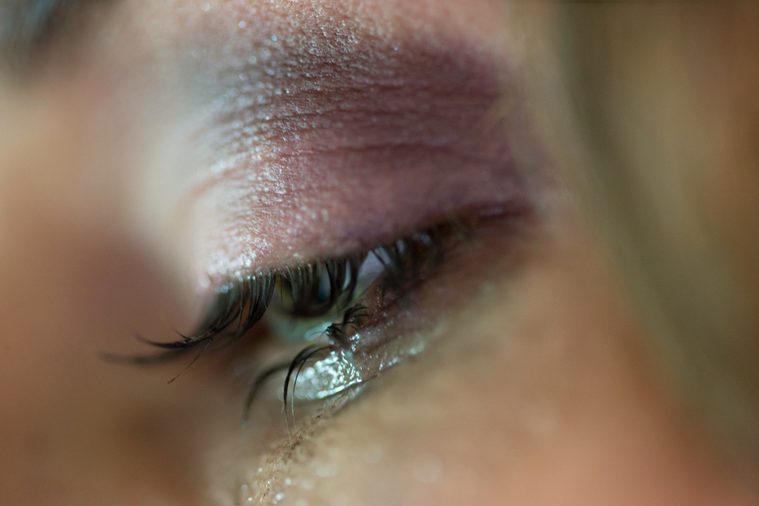
Dry eyes
Strangely, excessive tearing is a sign that your eyes are desperately trying to make up for a lack of moisture. And you can thank menopause changes and plummeting hormones for those “Cheech and Chong”–style eyes, Dolgen says. Hormones affect the ocular tissues and the composition of tears your eyes produce, resulting in excessively dry eyes and changes in vision (going from near-sighted to far-sighted, for example).
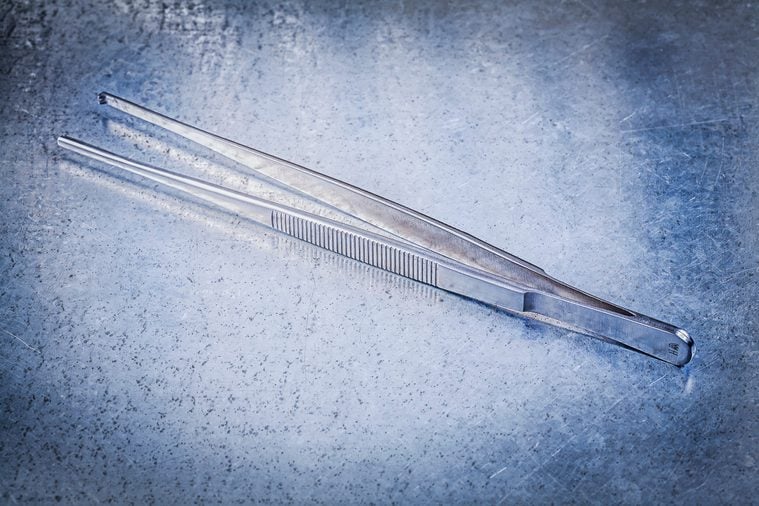
Chin hair
Don’t be surprised if your tweezers become your new best friend, Dolgen says. For a lucky 15 percent of women, “super human” hair on your chin, upper lip, or cheeks is an all-too-common symptom of perimenopause, according to the North American Menopause Society. And, perhaps what’s worse, the hair on your head may become thin, dry, or brittle.
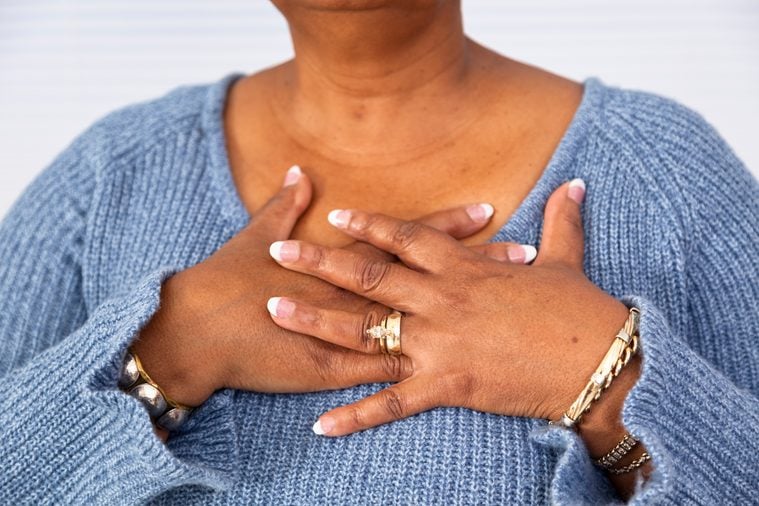
Heart palpitations
The sudden speeding-up or irregularity of your heart rate is a common yet not often talked about symptom of perimenopause. Studies show that epinephrine and norepinephrine, the neurotransmitters that regulate heart rate and blood pressure, tend to fluctuate in menopausal women, David Portman, MD, a gynecologist and director of the Columbus Center for Women’s Health Research in Ohio, told everydayhealth.com. Check out these natural remedies for annoying menopause symptoms.
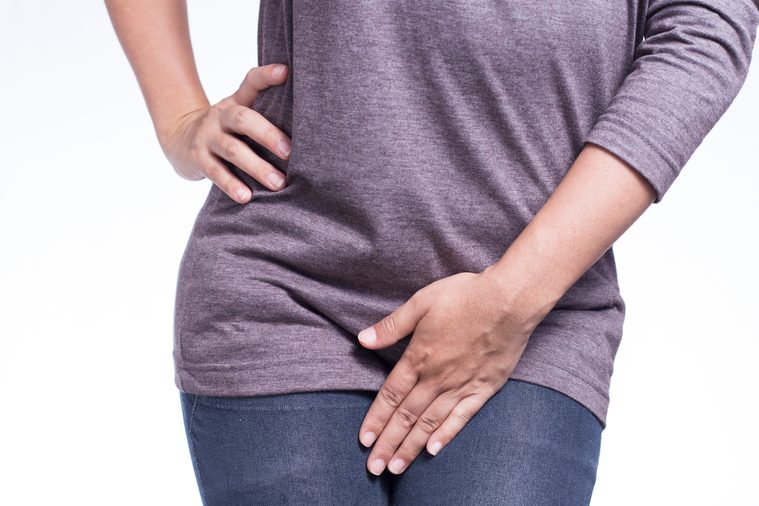
Urinary urgency or leakage
Pee a little when you do jumping jacks or leak when you cough or sneeze? Gotta hurry up and go right now? It’s likely due to stress urinary incontinence (SUI) or urge urinary incontinence (UUI)—both common menopause changes. Lower estrogen levels cause the lining of the urethra to thin, says JoAnn V. Pinkerton, MD, executive director of the North American Menopause Society (NAMS). And weakened pelvic floor muscles, often a result of a vaginal childbirth, are also to blame.
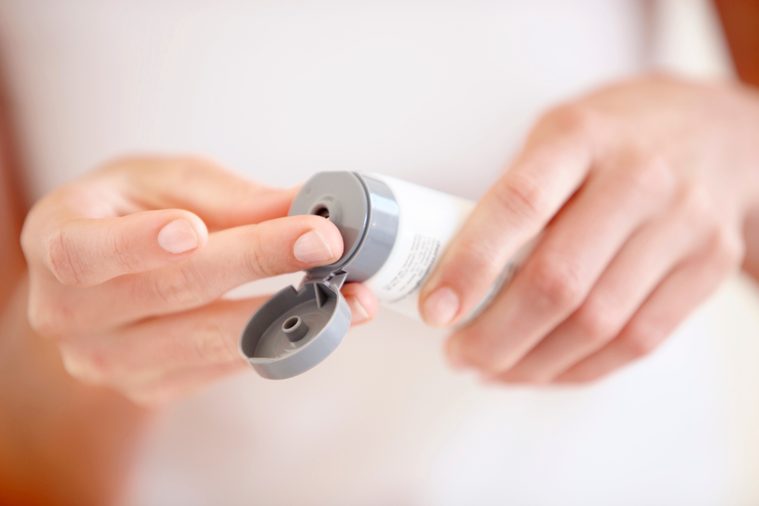
Dry skin
Less estrogen equals acne and dry and thinning skin for many women in entering menopause, which Dr. Pinkerton likens to “reverse puberty.” It’s also common to experience flare-ups or new cases of allergies and eczema during this time, adds Dolgen, whose swears by coconut oil for softer skin and smaller pores.
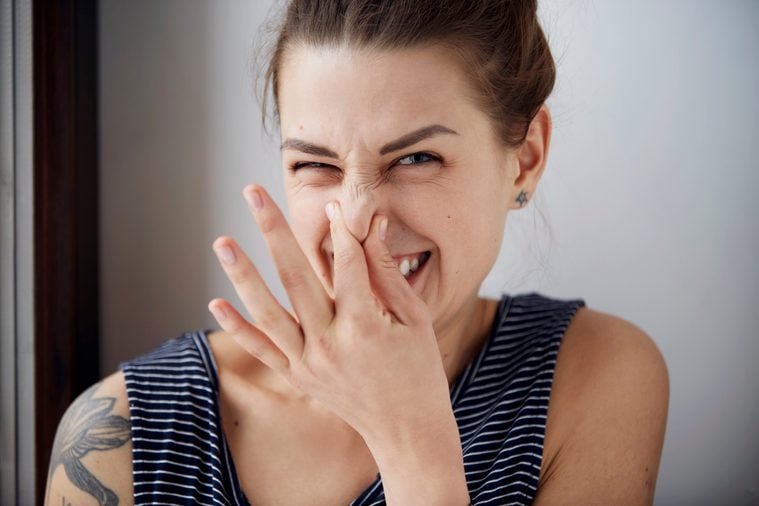
Body odor
Of course, the excessive sweating that accompanies night sweats and hot flashes can create an unpleasant odor. But there’s another explanation, too: A drop in estrogen levels tricks your hypothalamus gland into thinking you’re overheated, signaling your body to sweat more. Look out for these signs you are in perimenopause.
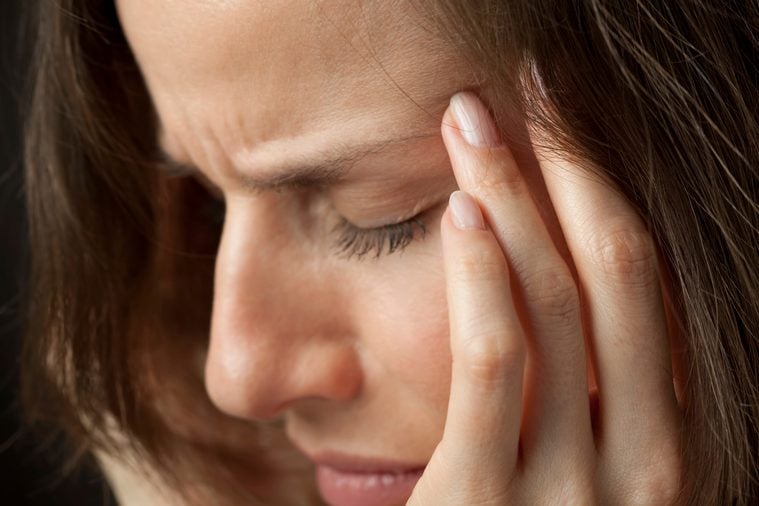
Migraines
Migraines may start for the first time, or worsen, when you start going through menopause because of new hormonal fluctuations, says Dr. Pinkerton. The good news, however, is that hormonal migraines usually stop or vastly improve after menopause, when levels are consistently low. In fact, only 5 percent of women suffer migraines after age 60, according to the Migraine Research Foundation.
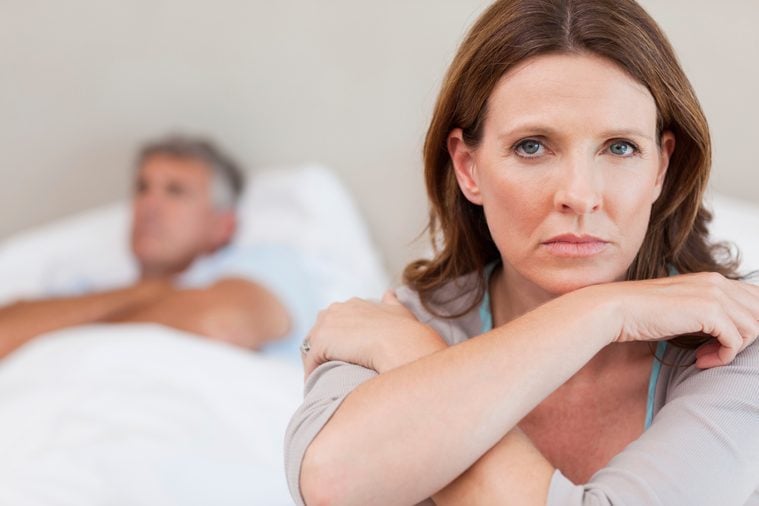
Vaginal dryness
Sex-stifling vaginal dryness was one of the most difficult symptoms for Dolgen. “Your vagina takes a trip to the desert and takes your eyes and skin along with it,” she says. Menopause changes, such as lower estrogen levels, cause thinner, drier and less-elastic vaginal tissue and decrease blood flow to the area. The result: vaginal dryness, itching, and painful sex.

Hot flashes
Sure you’ve heard about hot flashes, but you may not know that they can be different for every woman. Some even experience them for decades, starting in perimenopause. Caused by a drop in estrogen levels, which affects the gland that regulates body temperature, hot flashes can happen during the day or at night—or both. They can be mild, lasting seconds, or severe and stick around for a half hour or longer. Make sure you know the 10 surprising health risks that happen after menopause.
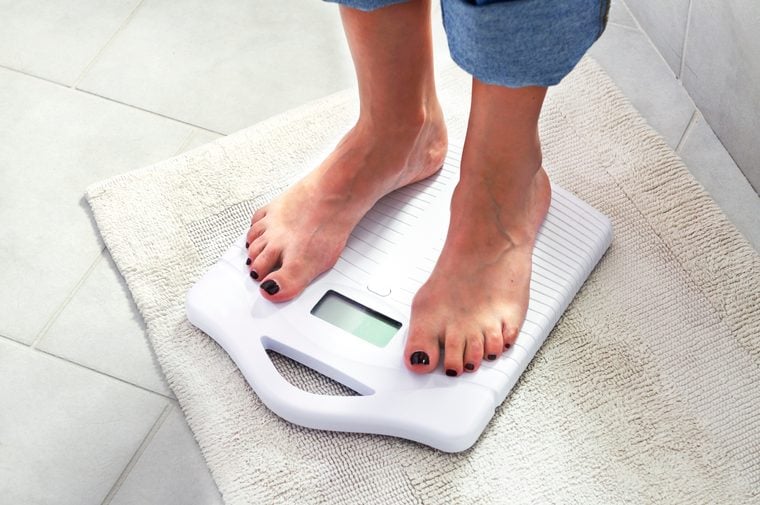
Weight shifts
Whether you call it meno-pot, meno-pudge, or middle-age spread, extra fat in the abdominal region is a reality for many women in perimenopause. “A woman’s weight throughout her menopausal journey is impacted by five factors: hormones, diet, exercise, stress, and genetics,” Dolgen explains. And you can also lose muscle mass—0.6 percent per year or more if you’re not physically active and don’t get enough protein, Dr. Pinkerton adds.
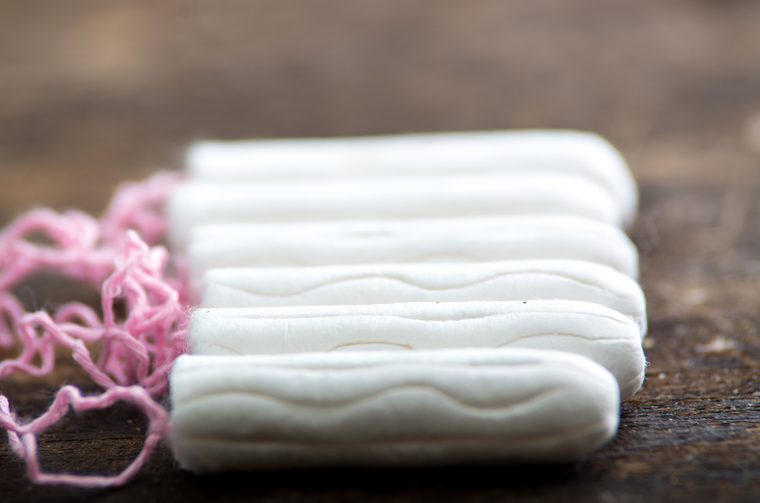
Irregular periods
Is your period shorter and lighter one month and heavy with cramping the next? This is part of perimenopause, explains Pinkerton. In addition to being a nuisance, irregular periods also up your pregnancy risk. “The second highest unintended pregnancy time for women is during your 40s,” Dr. Pinkerton says. “And pregnancy remains a risk until you haven’t had a period for a year.” This is what your period secretly wants to tell you.
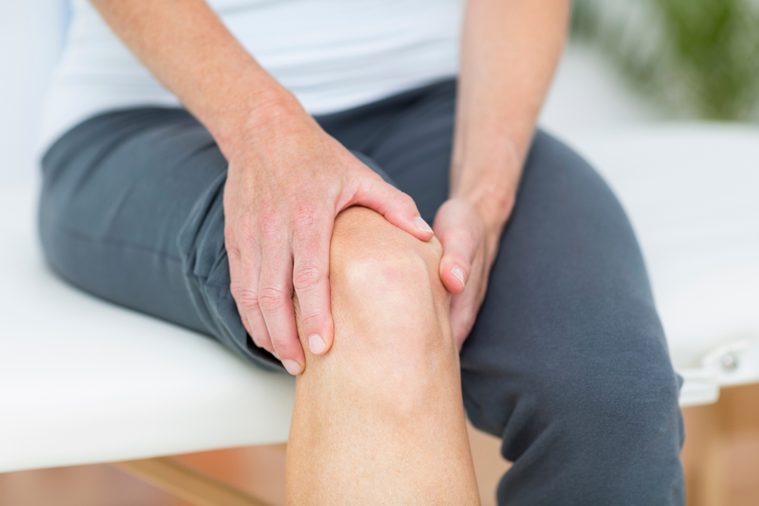
Bone loss
The less estrogen your ovaries produce, the more bone loss may accelerate. This can put you at a greater risk for osteoporosis, or bone thinning, which increases your risk of fracture. “You can lose up to 20 percent of your bones during the first five years of menopause,” Dr. Pinkerton says.
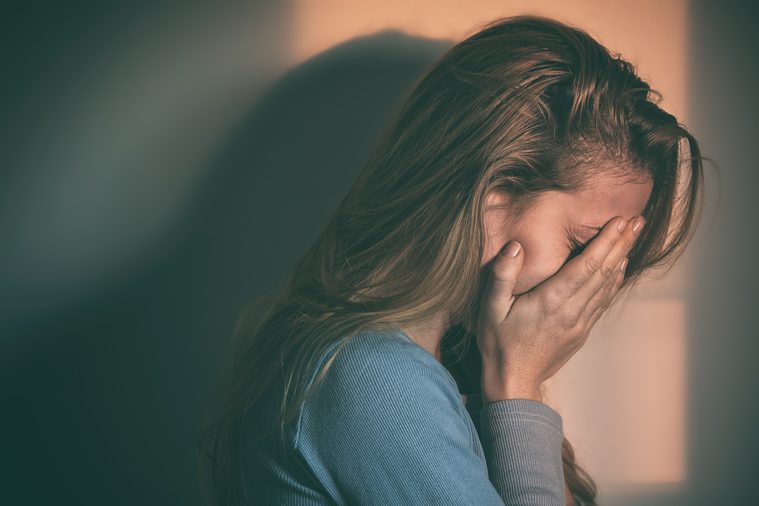
Fuzzy thinking
Hormonal changes—along with premenopausal symptoms like mood swings and sleep problems—may make you more forgetful and less focused. Stress also plays a role. “It’s hard to relax, especially when you’re going through the trials of perimenopause,” Dolgen says, “but it’s important for your mind and body to decompress.” Next, check out the answers to these embarrassing questions about menopause you’re too afraid to ask.